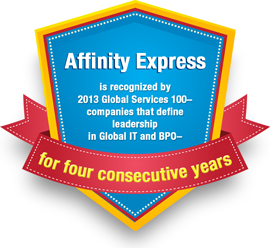The Principles of Quality
May 31, 2011 Leave a comment
 Quality has always been an experience for customers as well as for those of us working on the products. There are definitions of quality that we studied while getting trained in six sigma and TQM methods. But as we practiced quality through working on the production floor, one thing that stood out was that when we did “good” work, it always was an “experience” to the customer and, more importantly, to us. When you produce a quality product, you feel “good”.
Quality has always been an experience for customers as well as for those of us working on the products. There are definitions of quality that we studied while getting trained in six sigma and TQM methods. But as we practiced quality through working on the production floor, one thing that stood out was that when we did “good” work, it always was an “experience” to the customer and, more importantly, to us. When you produce a quality product, you feel “good”.
I could not define quality, so I delved into some reading and came up with interesting quotes, one defining it from a negative perspective.
Any person of any philosophic persuasion who sits on a hot stove will verify without any intellectual argument whatsoever that he is in an undeniably low-quality situation: that the value of his predicament is negative. This low quality is not just a vague, woolly-headed, crypto-religious, metaphysical abstraction. It is an experience. It is not a judgment about an experience. It is not a description of experience. The value itself is an experience. As such it is completely predictable. It is verifiable by anyone who cares to do so. It is reproducible.
From “Lila” by Robert Pirsig
Another quote from the same author:
To an experienced Zen Buddhist, asking if one believes in Zen or one believes in the Buddha, sounds a little ludicrous, like asking if one believes in air or water. Similarly quality is not something you believe in, quality is something you experience.
So the principles of quality all have this end goal of “experience”, not the repeatable verifiable negative experience but exactly the opposite.
In my mind, as we do the technical and creative work for the graphic arts industry, this “experience” is all the more important.
We have a continuous improvement program at Affinity Express aimed at getting that high-quality experience to our clients. It is centered around some principles that we value and that are shared with all employees.
The first principle: know your customer and his needs.
To quote Deming:
Everybody here has a customer. And if he doesn’t know who it is and what constitutes the needs of the customer . . . then he does not understand his job.
Your study of the consumer–what he finds right and what he finds wrong–and your innovation are all bound up together. It will affect design and redesign of your product or service.
We have the best cross-cultural, cross-platform team working to fulfill client needs. Our team intimately understands the needs of our industry and can translate those needs into processes and designs that give the right experience to our clients.
The second principle is improvement of processes. Quoting Deming again,
Inspection with the aim of finding the bad ones and throwing them out is too late, ineffective, costly. Quality comes not from inspection but from improvement of the process.
The process improvement methodology at Affinity Express is to take projects relevant to the needs of the clients and is driven by subject matter experts.
The third principle is to institutionalize training.
Deming suggested that to drive quality, education in simple but powerful statistical techniques is required. Our continuous improvement program is focused on teaching along with boot camps on other creative processes. We at Affinity Express look at our people as our greatest strength and we train our managers on all aspects of managing this important resource. As Deming said:
There is no excuse to offer for putting people on a job that they know not how to do. Most so-called “goofing off”—somebody seems to be lazy, doesn’t seem to care–that person is almost always in the wrong job, or has very poor management.
People work in the system. Management creates the system.
People are entitled to joy in their work and a sense of ownership.
The above three principles capture the essence of the Affinity Express program but there are lots of other creative minds in the company working on creating a “journey of quality”, which will give the clients an ever more valuable experience.
